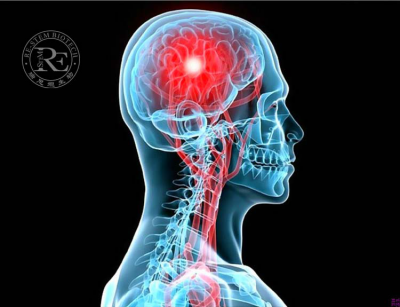 細胞培養(yǎng)進口血清進口胎牛血清進口新生牛血清進口豬血清馬血清
細胞培養(yǎng)進口血清進口胎牛血清進口新生牛血清進口豬血清馬血清 支原體檢測盒及標準品常規(guī)PCR檢測試劑盒熒光定量PCR檢測(qPCR法)支原體DNA提取靈敏度標準品(方法驗證用)特異性標準品(方法驗證用)PCR定量標準品(可用于方法驗證)
支原體檢測盒及標準品常規(guī)PCR檢測試劑盒熒光定量PCR檢測(qPCR法)支原體DNA提取靈敏度標準品(方法驗證用)特異性標準品(方法驗證用)PCR定量標準品(可用于方法驗證) 支原體祛除試劑細胞中支原體祛除環(huán)境支原體祛除水槽支原體祛除
支原體祛除試劑細胞中支原體祛除環(huán)境支原體祛除水槽支原體祛除 干細胞培養(yǎng)基
干細胞培養(yǎng)基 DNA/RNA污染祛除DNA/RNA污染祛除試劑DNA污染監(jiān)測
DNA/RNA污染祛除DNA/RNA污染祛除試劑DNA污染監(jiān)測 RNA病毒研究試劑RNA病毒檢測試劑盒病毒RNA提取
RNA病毒研究試劑RNA病毒檢測試劑盒病毒RNA提取 PCR儀器及配套產(chǎn)品DNA污染監(jiān)測祛除PCR/qPCR儀性能檢查PCR試劑PCR試劑盒PCR預混液(凍干粉)熱啟動聚合酶MB Taq DNA
PCR儀器及配套產(chǎn)品DNA污染監(jiān)測祛除PCR/qPCR儀性能檢查PCR試劑PCR試劑盒PCR預混液(凍干粉)熱啟動聚合酶MB Taq DNA 微生物PCR檢測食品檢測類產(chǎn)品食品微生物檢測細菌PCR檢測
微生物PCR檢測食品檢測類產(chǎn)品食品微生物檢測細菌PCR檢測
- 細胞培養(yǎng)進口血清進口胎牛血清進口新生牛血清進口豬血清馬血清
- 支原體檢測盒及標準品常規(guī)PCR檢測試劑盒熒光定量PCR檢測(qPCR法)支原體DNA提取靈敏度標準品(方法驗證用)特異性標準品(方法驗證用)PCR定量標準品(可用于方法驗證)
- 支原體祛除試劑細胞中支原體祛除環(huán)境支原體祛除水槽支原體祛除
- 干細胞培養(yǎng)基
- DNA/RNA污染祛除DNA/RNA污染祛除試劑DNA污染監(jiān)測
- RNA病毒研究試劑RNA病毒檢測試劑盒病毒RNA提取
- PCR儀器及配套產(chǎn)品DNA污染監(jiān)測祛除PCR/qPCR儀性能檢查PCR試劑PCR試劑盒PCR預混液(凍干粉)熱啟動聚合酶MB Taq DNA
- 微生物PCR檢測食品檢測類產(chǎn)品食品微生物檢測細菌PCR檢測
|
|
干細胞治療在中風領(lǐng)域獲得重要進展2017-05-05 12:45
【威正翔禹生物為您導讀】中風是由于各種腦部血管病變所引起的腦功能缺損的一組疾病的總稱,發(fā)病率高達120-180人/10萬,且有75%以上患者可因此致殘,乃至死亡。最近,瑞典隆德大學科學家在采用干細胞治療中風領(lǐng)域取得重要進展,獲得全球的矚目。
腦中風是由于血管產(chǎn)生淤積,阻塞了血流通過,使得大腦缺氧而產(chǎn)生的疾病。最近瑞典隆德大學研究人員在采用干細胞治療中風領(lǐng)域中取得了重要進展。相關(guān)報道發(fā)表在近期的《Brain 大腦》雜志上。研究人員將誘導多能干細胞在體外發(fā)育成成熟神經(jīng)元,并移植到大鼠因中風而損傷的大腦皮層內(nèi)。該移植的神經(jīng)元能夠和腦內(nèi)其他重要結(jié)構(gòu)都產(chǎn)生聯(lián)系。并且移植手術(shù)顯著提高大鼠的運動能力。雖然該研究還處在動物實驗階段,但是科學家對該療法的信心很強。 該文章的通訊作者OlleLindvall博士稱,該研究在基于干細胞治療中風方面取得了重要成果,但是還需要更多的研究才能確定該研究的臨床意義。大腦皮層通常因中風而遭到損傷,引起很多后遺癥如輕度癱瘓,語言障礙等。研究人員希望能夠采用病人自身的皮膚細胞產(chǎn)生神經(jīng)元,來治療中風。研究人員首先從成人中獲得皮膚細胞并將其誘導為多能干細胞,接著誘導多能干細胞產(chǎn)生成熟的神經(jīng)元。 ZaalKokaia博士稱,采用該方法我們已經(jīng)能夠產(chǎn)生和大腦皮層中性質(zhì)一致的神經(jīng)元,而且我們也顯示了這些神經(jīng)元也是有功能的。不過需要解決的問題是要找到一種能夠大量產(chǎn)生神經(jīng)元的方法,這對移植手術(shù)很必要。ZaalKokaia博士補充道,我們必須要研究移植的神經(jīng)元對大腦其他功能的影響,以及新神經(jīng)元與其他神經(jīng)元的整合程度等諸多問題。 推薦閱讀原文: Human induced pluripotent stem cell-derived cortical neuronsintegrate in stroke-injured cortex and improve functional recovery.Abstract Stemcell-based approaches to restore function after stroke through replacement ofdead neurons require the generation of specificneuronal subtypes. Loss of neurons in thecerebral cortex is a major cause of stroke-induced neurological deficits in adult humans.Reprogramming of adult human somatic cells to induced pluripotent stem cells is a novel approach to producepatient-specific cells for autologous transplantation. Whether such cells canbe converted to functional cortical neurons thatsurvive and give rise to behavioural recoveryafter transplantation in the stroke-injuredcerebral cortex is not known. We have generatedprogenitors in vitro, expressing specific corticalmarkers and giving rise to functional neurons, from long-term self renewingneuroepithelial-like stem cells, produced fromadult human fibroblast-derived induced pluripotent stem cells. At 2 months after transplantation into thestroke-damaged rat cortex, the cortically fatedcells showed less proliferation and more efficient conversion to mature neurons with morphological and immunohistochemicalcharacteristics of a cortical phenotype andhigher axonal projection density as compared with non-fated cells. Pyramidalmorphology and localization of the cells expressing the cortex-specificmarker TBR1 in a certain layered pattern provided further evidence supportingthe cortical phenotype of the fated, graftedcells, and electrophysiological recordings demonstrated their functionality.Both fated and non-fated cell-transplanted groups showed bilateral recovery of the impaired function in the stepping testcompared with vehicle-injected animals. The behavioural improvement at thisearly time point was most likely not due to neuronal replacement andreconstruction of circuitry. At 5 months after stroke in immunocompromisedrats, there was no tumour formation and the grafted cells exhibitedelectrophysiological properties of mature neuronswith evidence of integration in host circuitry. Our findings show, for thefirst time, that human skin-derived induced pluripotent stem cells can be differentiated to cortical neuronal progenitors, which survive,differentiate to functionalneurons and improveneurological outcome after intracortical implantation in a rat stroke model. 上一篇: 血糖難控制?干細胞治療帶來新希望
|
 細胞培養(yǎng)進口血清
細胞培養(yǎng)進口血清 支原體祛除試劑
支原體祛除試劑 干細胞培養(yǎng)基
干細胞培養(yǎng)基



